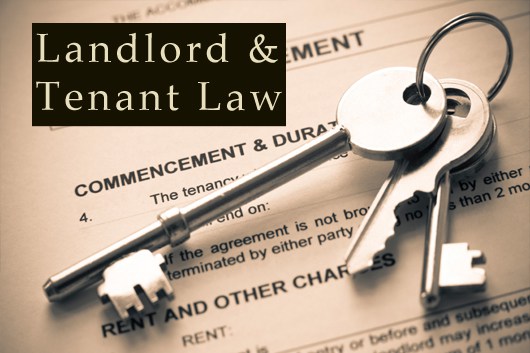In landlord tenant contracts lately they have been this persisting issue of who bear the brunt after an identified defect is discovered in a property after the rent must have been paid. In property law transactions, particularly leasehold (Typical landlord and tenant relationship), it is quite common to come across situations whereby contention regarding who is to fix what in a property may arise. This typically occurs when a Landlord has given up possession of his premises, upon payment of rent by the tenant and then maybe after the tenant moves in or upon further inspection, he realizes that there are certain defects in the property which he or she didn’t know about before paying.
The question then arises, who pays for these defects. The Landlord? Or the tenant?
In Property law transactions, when you buy something, there is an implied covenant that the thing sold/leased is free from any defects. A seller can contract out of that implied covenant by stating that the thing sold is bought ‘as it is’.
Under the respective Tenancy laws of Nigeria, in most Tenancy agreements there are express provisions stipulating certain rights and duties and this is what is termed as “covenants”. There is an implied covenant at common law in respect of use of property that the premises will be fit for human habitation when they are let (but not subsequently). The rule is “caveat lessee”. As Devlin J proposed: “It is the business of the tenant, if he does not protect himself by an express covenant, to satisfy himself that the premises are fit for the purpose for which he wants to have them, whether that fitness depends upon the state of their structure, the state of the law, or any other relevant circumstances”.
These clauses normally free the Seller from his implied covenant against all latent and patent defects. However, there are two exceptions here, where:
The seller knew of the defects and did not disclose them to the purchaser;
The purchaser can also cancel the contract on the basis of a fraudulent or innocent material misrepresentation.
Before looking at how far this protection goes it is important to explain the distinction between these two different types of defects.
Patent defect: Patent defects are defects which the normal person should be able to see upon an inspection of the thing sold. The test is an objective one, namely what could have been seen on the original inspection of the property.
Latent defect: Latent defects are defects which only an expert could discover or defects which cannot be discovered by an ordinary person during a reasonably thorough inspection. These include rusted internal pipes, leaking roofs (except where strain marks make the leak obvious) and defects that have been concealed such as dampness behind a cabinet. The test is what could not normally be seen on inspection.
Where there is some defect in the house which is not apparent on a careful inspection, the seller is liable for those defects if he or she knew about them. In other words, the seller has a duty to reveal to the buyer any latent defects. In such instance of non-disclosure, the seller may be called upon to refund part of the purchase price or even to accept cancellation of the entire sale, depending on the nature or extent of the defect.
So how do you protect yourself as a potential tenant? Below are just a few examples.
Hire a competent home inspector to investigate your potential home. A good home inspector will ensure that you are aware of any patent defects before you purchase or lease the premises.
Take the time to do your own thorough investigations of the property. Don’t be satisfied with what the vendor’s agent or caretaker may tell you about the state of a property. Do whatever you have to in order to be satisfied that your potential house is in a state you find acceptable.
Incorporate any representations or warranties that enticed you to purchase or rent the property into your tenancy agreement or contract of sale. Most contracts of purchase and sale contain a “no other representations or warranties clause”. For example, if the vendor has told you that the banana plantation in the backyard are prize winning and you will be able to enjoy those bananas and profit from their fruit, unless that representation is incorporated into the contract, you may have no legal right to recover if that statement turns out to be untrue.
Visit the property at different times of the day/week. Some issues with a property are only discoverable under certain conditions, so make sure to visit during different weather or times of the week.
Ask the landlord directly about major concerns with the property that are personal to you and let the landlord know how important the issue is to you. Also get the answer in writing and think about incorporating it into the contract.
Now if the Landlord has defaulted in disclosing these latent defects, the remedy open to one in law is to give notice of repair, demand for Specific performance to repair or as you move out, seek for refund of the rent money. Such covenants as to handle defects must however be expressly written in the tenancy agreement. This is why it is very important for you to have a tenancy agreement reviewed by your lawyer before you pay money to buy an apartment or to lease one.




